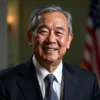This article discusses a recent arrest warrant for a former presidential spokesperson linked to POGO, highlighting broader issues of accountability, ethical governance, public trust, and the need for regulatory reform.
Response to Former Presidential Spokesperson’s POGO-Related Arrest Warrant
Recent Developments in Governance
In light of the recent arrest warrant issued for a former presidential spokesperson related to POGO (Philippine Offshore Gaming Operators), we arrive at a crucial juncture where politics meets ethical governance. Just like a traffic light guiding cars safely, this situation shines a light on the legislative and regulatory landscape governing online gaming in the Philippines.
As discussions about POGO continue to unfold, this incident reminds us of the heavy responsibilities shouldered by those in public office. It’s not just about one person’s actions; it symbolizes larger issues surrounding accountability within the government. Philippine gaming industry
The implications of this arrest ripple through public trust and the integrity of political institutions. Consequently, it beckons us to diligently examine the systems regulating associated industries, similar to how a doctor examines a patient to ensure their health. PAGCOR’s regulatory efforts
Calls for Accountability
As we gauge public sentiment in response to these developments, we notice a rising tide of calls for transparency and reform concerning the relationships between government officials and the private sector, particularly in industries that provoke controversy, like online gaming. POGO withdrawal impact
Many opinion leaders stress the importance of effective governance, which requires holding individuals accountable for wrongdoing. They argue that when officials falter, the impact is felt by everyone, much like a ripple in a pond. battle against online gambling
The Shift Towards Ethical Governance
This growing scrutiny from both government authorities and the public symbolizes a changing landscape, where calls for ethical governance are louder and more urgent than ever. As citizens become more engaged and informed, their role in advocating for necessary reforms is crucial; they act as sentinels ensuring that the government prioritizes the interests of its people.
Looking Ahead
Ultimately, the outcome of this situation could set a precedent for the future of governance in the Philippines. This scenario may lead to more stringent regulations in emerging sectors, reinforcing the necessity for integrity at all levels of public service, much like a sturdy foundation supporting a tall building.













